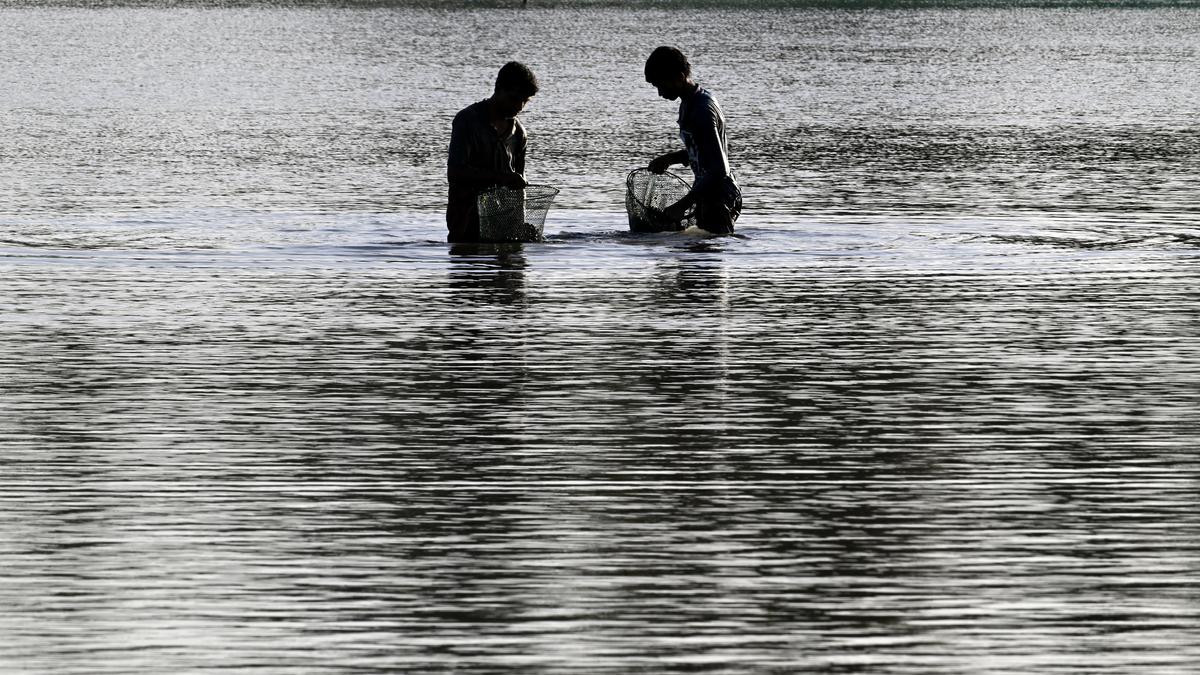
Kerala govt approves use of dredged soil from Vembanad Lake for NH 66 construction in Alappuzha
The Hindu
Kerala government permits dredged soil from Vembanad Lake for NH 66 development, raising concerns about environmental and social impacts.
The Kerala government has granted permission to use dredged soil from Vembanad Lake for the development of National Highway (NH) 66 in Alappuzha district.
Dredging will be carried out on a 3.2- km stretch of the lake near Punnamada. The hydrographic survey wing has already earmarked the area. The soil removed will be brought to the shore using jhankars. Plastic and other unwanted materials will be removed before the soil is used for filling purposes on the Thuravoor-Paravoor stretch of the national highway.
“We plan to begin dredging the lake in the coming days. The availability of soil will expedite the construction work,” said an official of KCC Buildcon Company, entrusted with the development of the Thuravoor-Paravoor stretch.
The government has permitted the extraction of soil up to a depth of three metres in the lake. A shortage of soil had adversely affected the development of the NH stretch.
In 2024, the government allowed the use of dredged soil from Ashtamudi Lake for the widening of NH 66 south of Paravoor.
The removal of silt from the lake is expected to increase the water-holding capacity of the waterbody. A study published in 2023 by the Centre for Aquatic Resource Management and Conservation, Kerala University of Fisheries and Ocean Studies (Kufos), revealed that the water retention capacity of the waterbody has been reduced by 85.3%. From 2,617.5 million cubic metres in 1990, the capacity reduced to 384.66 million cubic metres in 2020.
Experts support removing silt from the upper strata of the waterbody but caution against deep-bottom dredging. They warn that deep dredging could lead to salination. “Silt should be removed from the lake. It should be done in blocks using grabs and not by heavy dredgers,” said K.G. Padmakumar, director, International Research and Training Centre for Below Sea Level Farming (IRTCBSF), Kuttanad.

“Earth Day celebrations have already started in Bengaluru, with campaigns at various colleges such as St. Josephs, and Christ University where life-size elephants made from the invasive species, Lantana Camera, have been travelling to spread the message of conservation and coexistence, along with expert talks from WWF India and Ravi Chellam of Metastring Foundation,” said the release.

Vijayawada and Vizag metro rails: Centre approves appointment of SYSTRA MVA Consulting for preparing mobility plans. The New Delhi-based consultant has emerged as the successful bidder for preparing CMPs for both the projects. The Government of Andhra Pradesh has sanctioned DPRs for construction of the Visakhapatnam Metro Rail for a length of 46.23 km in three corridors at an estimated cost of ₹11,498 crore and the Vijayawada Metro Rail for a length of 38.40 km in two corridors at a cost of ₹11,009 crore.











